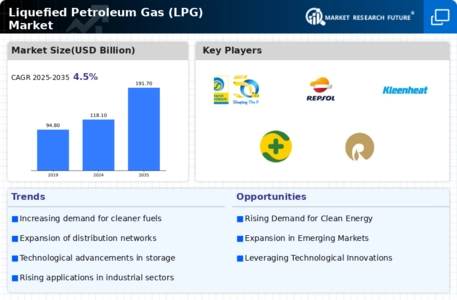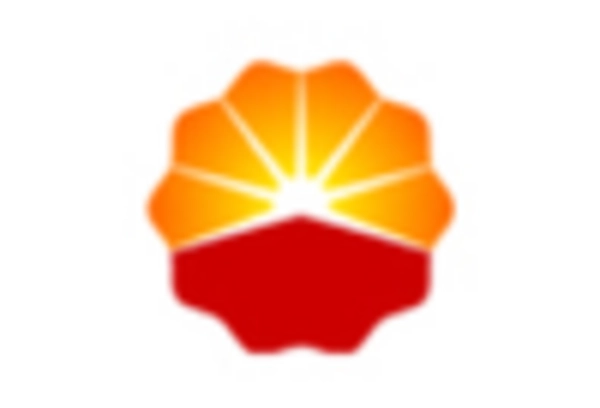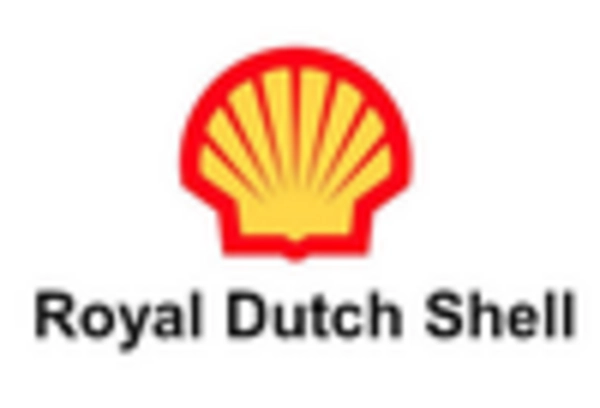-
EXECUTIVE SUMMARY
-
MARKET INTRODUCTION
-
Definition
-
Scope of the Study
- Research Objective
- Assumptions
- Limitations
-
RESEARCH METHODOLOGY
-
Overview
-
Data Mining
-
Secondary Research
-
Primary Research
- Primary Interviews and Information Gathering Process
- Breakdown of Primary Respondents
-
Forecasting Model
-
Market Size Estimation
- Bottom-Up Approach
- Top-Down Approach
-
Data Triangulation
-
Validation
-
MARKET DYNAMICS
-
Overview
-
Drivers
-
Restraints
-
Opportunities
-
MARKET FACTOR ANALYSIS
-
Value Chain Analysis
-
Porter’s Five Forces Analysis
- Bargaining Power of Suppliers
- Bargaining Power of Buyers
- Threat of New Entrants
- Threat of Substitutes
- Intensity of Rivalry
-
COVID-19 Impact Analysis
- Market Impact Analysis
- Regional Impact
- Opportunity and Threat Analysis
-
GLOBAL LIQUEFIED PETROLEUM GAS (LPG) Liquefied Petroleum Gas LPG Market, BY SOURCE
-
Overview
-
Refinery
-
Associated Gas
-
Non-associated Gas
-
GLOBAL LIQUEFIED PETROLEUM GAS (LPG) Liquefied Petroleum Gas LPG Market, BY APPLICATION
-
Overview
-
Residential
-
Commercial
-
Agriculture
-
Industrial
-
Transportation
-
Others
-
GLOBAL LIQUEFIED PETROLEUM GAS (LPG) Liquefied Petroleum Gas LPG Market, BY REGION
-
Overview
-
North America
- U.S.
- Canada
-
Europe
- Germany
- France
- U.K
- Italy
- Spain
- Rest of Europe
-
Asia-Pacific
- China
- India
- Japan
- South Korea
- Australia
- Rest of Asia-Pacific
-
Rest of the World
- Middle East
- Africa
- Latin America
-
COMPETITIVE LANDSCAPE
-
Overview
-
Competitive Analysis
-
Market Share Analysis
-
Major Growth Strategy in the Global Liquefied Petroleum Gas (LPG) Market,
-
Competitive Benchmarking
-
Leading Players in Terms of Number of Developments in the Global Liquefied Petroleum Gas (LPG) Market,
-
Key developments and Growth Strategies
- New SOURCE Launch/Application Deployment
- Merger & Acquisitions
- Joint Ventures
-
Major Players Financial Matrix
- Sales & Operating Income, 2022
- Major Players R&D Expenditure. 2022
-
COMPANY PROFILES
-
SAUDI ARABIAN OIL CO.
- Company Overview
- Financial Overview
- SOURCEs Offered
- Key Developments
- SWOT Analysis
- Key Strategies
-
CHINA GAS HOLDINGS LTD.
- Company Overview
- Financial Overview
- SOURCEs Offered
- Key Developments
- SWOT Analysis
- Key Strategies
-
CHEVRON CORPORATION
- Company Overview
- Financial Overview
- SOURCEs Offered
- Key Developments
- SWOT Analysis
- Key Strategies
-
BHARAT PETROLEUM CORPORATION LIMITED
- Company Overview
- Financial Overview
- SOURCEs Offered
- Key Developments
- SWOT Analysis
- Key Strategies
-
FLAGA GMBH
- Company Overview
- Financial Overview
- SOURCEs Offered
- Key Developments
- SWOT Analysis
- Key Strategies
-
REPSOL
- Company Overview
- Financial Overview
- SOURCEs Offered
- Key Developments
- SWOT Analysis
- Key Strategies
-
KLEENHEAT
- Company Overview
- Financial Overview
- SOURCEs Offered
- Key Developments
- SWOT Analysis
- Key Strategies
-
TOTAL SE
- Company Overview
- Financial Overview
- SOURCEs Offered
- Key Developments
- SWOT Analysis
- Key Strategies
-
RELIANCE INDUSTRIES LIMITED
- Company Overview
- Financial Overview
- SOURCEs Offered
- Key Developments
- SWOT Analysis
- Key Strategies
-
EXXON MOBIL CORPORATION
- Company Overview
- Financial Overview
- SOURCEs Offered
- Key Developments
- SWOT Analysis
- Key Strategies
-
APPENDIX
-
References
-
Related Reports
-
-
LIST OF TABLES
-
GLOBAL LIQUEFIED PETROLEUM GAS (LPG) MARKET, SYNOPSIS, 2024-2032
-
GLOBAL LIQUEFIED PETROLEUM GAS (LPG) MARKET, ESTIMATES & FORECAST, 2024-2032 (USD BILLION)
-
GLOBAL LIQUEFIED PETROLEUM GAS (LPG) Liquefied Petroleum Gas LPG Market, BY SOURCE, 2024-2032 (USD BILLION)
-
GLOBAL LIQUEFIED PETROLEUM GAS (LPG) Liquefied Petroleum Gas LPG Market, BY APPLICATION, 2024-2032 (USD BILLION)
-
NORTH AMERICA LIQUEFIED PETROLEUM GAS (LPG) Liquefied Petroleum Gas LPG Market, BY SOURCE, 2024-2032 (USD BILLION)
-
NORTH AMERICA LIQUEFIED PETROLEUM GAS (LPG) Liquefied Petroleum Gas LPG Market, BY APPLICATION, 2024-2032 (USD BILLION)
-
NORTH AMERICA LIQUEFIED PETROLEUM GAS (LPG) Liquefied Petroleum Gas LPG Market, BY COUNTRY, 2024-2032 (USD BILLION)
-
U.S. LIQUEFIED PETROLEUM GAS (LPG) Liquefied Petroleum Gas LPG Market, BY SOURCE, 2024-2032 (USD BILLION)
-
U.S. LIQUEFIED PETROLEUM GAS (LPG) Liquefied Petroleum Gas LPG Market, BY APPLICATION, 2024-2032 (USD BILLION)
-
CANADA LIQUEFIED PETROLEUM GAS (LPG) Liquefied Petroleum Gas LPG Market, BY SOURCE, 2024-2032 (USD BILLION)
-
CANADA LIQUEFIED PETROLEUM GAS (LPG) Liquefied Petroleum Gas LPG Market, BY APPLICATION, 2024-2032 (USD BILLION)
-
EUROPE LIQUEFIED PETROLEUM GAS (LPG) Liquefied Petroleum Gas LPG Market, BY SOURCE, 2024-2032 (USD BILLION)
-
EUROPE LIQUEFIED PETROLEUM GAS (LPG) Liquefied Petroleum Gas LPG Market, BY APPLICATION, 2024-2032 (USD BILLION)
-
EUROPE LIQUEFIED PETROLEUM GAS (LPG) Liquefied Petroleum Gas LPG Market, BY COUNTRY, 2024-2032 (USD BILLION)
-
GERMANY LIQUEFIED PETROLEUM GAS (LPG) Liquefied Petroleum Gas LPG Market, BY SOURCE, 2024-2032 (USD BILLION)
-
GERMANY LIQUEFIED PETROLEUM GAS (LPG) Liquefied Petroleum Gas LPG Market, BY APPLICATION, 2024-2032 (USD BILLION)
-
FRANCE LIQUEFIED PETROLEUM GAS (LPG) Liquefied Petroleum Gas LPG Market, BY SOURCE, 2024-2032 (USD BILLION)
-
FRANCE LIQUEFIED PETROLEUM GAS (LPG) Liquefied Petroleum Gas LPG Market, BY APPLICATION, 2024-2032 (USD BILLION)
-
ITALY LIQUEFIED PETROLEUM GAS (LPG) Liquefied Petroleum Gas LPG Market, BY SOURCE, 2024-2032 (USD BILLION)
-
ITALY LIQUEFIED PETROLEUM GAS (LPG) Liquefied Petroleum Gas LPG Market, BY APPLICATION, 2024-2032 (USD BILLION)
-
SPAIN LIQUEFIED PETROLEUM GAS (LPG) Liquefied Petroleum Gas LPG Market, BY SOURCE, 2024-2032 (USD BILLION)
-
SPAIN LIQUEFIED PETROLEUM GAS (LPG) Liquefied Petroleum Gas LPG Market, BY APPLICATION, 2024-2032 (USD BILLION)
-
U.K LIQUEFIED PETROLEUM GAS (LPG) Liquefied Petroleum Gas LPG Market, BY SOURCE, 2024-2032 (USD BILLION)
-
U.K LIQUEFIED PETROLEUM GAS (LPG) Liquefied Petroleum Gas LPG Market, BY APPLICATION, 2024-2032 (USD BILLION)
-
REST OF EUROPE LIQUEFIED PETROLEUM GAS (LPG) Liquefied Petroleum Gas LPG Market, BY SOURCE, 2024-2032 (USD BILLION)
-
REST OF EUROPE LIQUEFIED PETROLEUM GAS (LPG) Liquefied Petroleum Gas LPG Market, BY APPLICATION, 2024-2032 (USD BILLION)
-
ASIA PACIFIC LIQUEFIED PETROLEUM GAS (LPG) Liquefied Petroleum Gas LPG Market, BY SOURCE, 2024-2032 (USD BILLION)
-
ASIA PACIFIC LIQUEFIED PETROLEUM GAS (LPG) Liquefied Petroleum Gas LPG Market, BY APPLICATION, 2024-2032 (USD BILLION)
-
ASIA PACIFIC LIQUEFIED PETROLEUM GAS (LPG) Liquefied Petroleum Gas LPG Market, BY COUNTRY, 2024-2032 (USD BILLION)
-
JAPAN LIQUEFIED PETROLEUM GAS (LPG) Liquefied Petroleum Gas LPG Market, BY SOURCE, 2024-2032 (USD BILLION)
-
JAPAN LIQUEFIED PETROLEUM GAS (LPG) Liquefied Petroleum Gas LPG Market, BY APPLICATION, 2024-2032 (USD BILLION)
-
CHINA LIQUEFIED PETROLEUM GAS (LPG) Liquefied Petroleum Gas LPG Market, BY SOURCE, 2024-2032 (USD BILLION)
-
CHINA LIQUEFIED PETROLEUM GAS (LPG) Liquefied Petroleum Gas LPG Market, BY APPLICATION, 2024-2032 (USD BILLION)
-
INDIA LIQUEFIED PETROLEUM GAS (LPG) Liquefied Petroleum Gas LPG Market, BY SOURCE, 2024-2032 (USD BILLION)
-
INDIA LIQUEFIED PETROLEUM GAS (LPG) Liquefied Petroleum Gas LPG Market, BY APPLICATION, 2024-2032 (USD BILLION)
-
AUSTRALIA LIQUEFIED PETROLEUM GAS (LPG) Liquefied Petroleum Gas LPG Market, BY SOURCE, 2024-2032 (USD BILLION)
-
AUSTRALIA LIQUEFIED PETROLEUM GAS (LPG) Liquefied Petroleum Gas LPG Market, BY APPLICATION, 2024-2032 (USD BILLION)
-
SOUTH KOREA LIQUEFIED PETROLEUM GAS (LPG) Liquefied Petroleum Gas LPG Market, BY SOURCE, 2024-2032 (USD BILLION)
-
SOUTH KOREA LIQUEFIED PETROLEUM GAS (LPG) Liquefied Petroleum Gas LPG Market, BY APPLICATION, 2024-2032 (USD BILLION)
-
REST OF ASIA-PACIFIC LIQUEFIED PETROLEUM GAS (LPG) Liquefied Petroleum Gas LPG Market, BY SOURCE, 2024-2032 (USD BILLION)
-
REST OF ASIA-PACIFIC LIQUEFIED PETROLEUM GAS (LPG) Liquefied Petroleum Gas LPG Market, BY APPLICATION, 2024-2032 (USD BILLION)
-
REST OF WORLD LIQUEFIED PETROLEUM GAS (LPG) Liquefied Petroleum Gas LPG Market, BY SOURCE, 2024-2032 (USD BILLION)
-
REST OF WORLD LIQUEFIED PETROLEUM GAS (LPG) Liquefied Petroleum Gas LPG Market, BY APPLICATION, 2024-2032 (USD BILLION)
-
REST OF WORLD LIQUEFIED PETROLEUM GAS (LPG) Liquefied Petroleum Gas LPG Market, BY COUNTRY, 2024-2032 (USD BILLION)
-
MIDDLE EAST LIQUEFIED PETROLEUM GAS (LPG) Liquefied Petroleum Gas LPG Market, BY SOURCE, 2024-2032 (USD BILLION)
-
MIDDLE EAST LIQUEFIED PETROLEUM GAS (LPG) Liquefied Petroleum Gas LPG Market, BY APPLICATION, 2024-2032 (USD BILLION)
-
AFRICA LIQUEFIED PETROLEUM GAS (LPG) Liquefied Petroleum Gas LPG Market, BY SOURCE, 2024-2032 (USD BILLION)
-
AFRICA LIQUEFIED PETROLEUM GAS (LPG) Liquefied Petroleum Gas LPG Market, BY APPLICATION, 2024-2032 (USD BILLION)
-
LATIN AMERICA LIQUEFIED PETROLEUM GAS (LPG) Liquefied Petroleum Gas LPG Market, BY SOURCE, 2024-2032 (USD BILLION)
-
LATIN AMERICA LIQUEFIED PETROLEUM GAS (LPG) Liquefied Petroleum Gas LPG Market, BY APPLICATION, 2024-2032 (USD BILLION)
-
-
LIST OF FIGURES
-
RESEARCH PROCESS
-
MARKET STRUCTURE FOR THE GLOBAL LIQUEFIED PETROLEUM GAS (LPG) MARKET
-
MARKET DYNAMICS FOR THE GLOBAL LIQUEFIED PETROLEUM GAS (LPG) MARKET
-
GLOBAL LIQUEFIED PETROLEUM GAS (LPG) MARKET, SHARE (%), BY SOURCE, 2022
-
GLOBAL LIQUEFIED PETROLEUM GAS (LPG) MARKET, SHARE (%), BY APPLICATION, 2022
-
GLOBAL LIQUEFIED PETROLEUM GAS (LPG) MARKET, SHARE (%), BY REGION, 2022
-
NORTH AMERICA: LIQUEFIED PETROLEUM GAS (LPG) MARKET, SHARE (%), BY REGION, 2022
-
EUROPE: LIQUEFIED PETROLEUM GAS (LPG) MARKET, SHARE (%), BY REGION, 2022
-
ASIA-PACIFIC: LIQUEFIED PETROLEUM GAS (LPG) MARKET, SHARE (%), BY REGION, 2022
-
REST OF THE WORLD: LIQUEFIED PETROLEUM GAS (LPG) MARKET, SHARE (%), BY REGION, 2022
-
GLOBAL LIQUEFIED PETROLEUM GAS (LPG) MARKET: COMPANY SHARE ANALYSIS, 2022 (%)
-
SAUDI ARABIAN OIL CO.: FINANCIAL OVERVIEW SNAPSHOT
-
SAUDI ARABIAN OIL CO.: SWOT ANALYSIS
-
CHINA GAS HOLDINGS LTD.: FINANCIAL OVERVIEW SNAPSHOT
-
CHINA GAS HOLDINGS LTD.: SWOT ANALYSIS
-
CHEVRON CORPORATION: FINANCIAL OVERVIEW SNAPSHOT
-
CHEVRON CORPORATION: SWOT ANALYSIS
-
BHARAT PETROLEUM CORPORATION LIMITED: FINANCIAL OVERVIEW SNAPSHOT
-
BHARAT PETROLEUM CORPORATION LIMITED: SWOT ANALYSIS
-
FLAGA GMBH.: FINANCIAL OVERVIEW SNAPSHOT
-
FLAGA GMBH.: SWOT ANALYSIS
-
REPSOL: FINANCIAL OVERVIEW SNAPSHOT
-
REPSOL: SWOT ANALYSIS
-
KLEENHEAT: FINANCIAL OVERVIEW SNAPSHOT
-
KLEENHEAT: SWOT ANALYSIS
-
TOTAL SE: FINANCIAL OVERVIEW SNAPSHOT
-
TOTAL SE: SWOT ANALYSIS
-
RELIANCE INDUSTRIES LIMITED: FINANCIAL OVERVIEW SNAPSHOT
-
RELIANCE INDUSTRIES LIMITED: SWOT ANALYSIS
-
EXXON MOBIL CORPORATION: FINANCIAL OVERVIEW SNAPSHOT
-
EXXON MOBIL CORPORATION: SWOT ANALYSIS'



















Leave a Comment